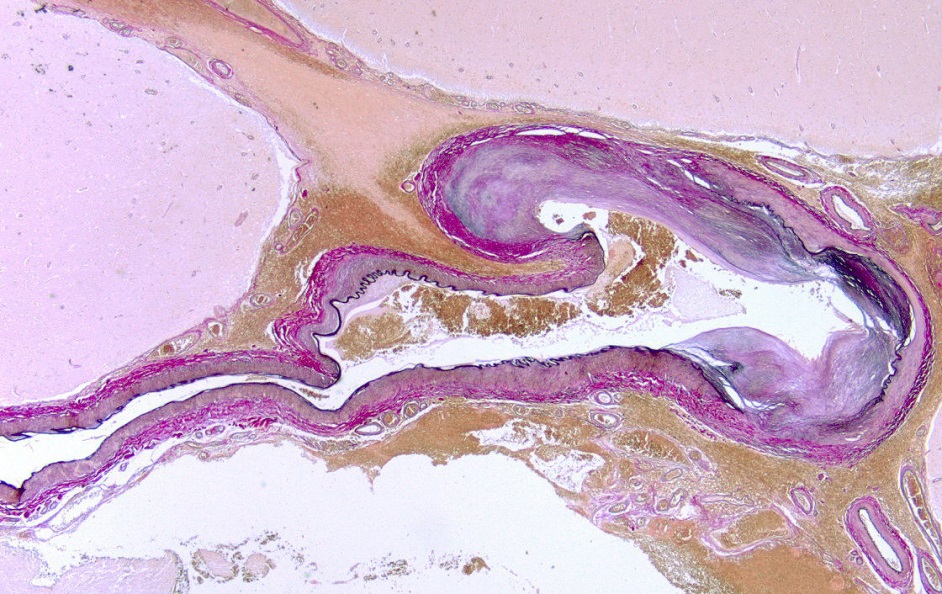
Brain UK study ref: 16/006,
Lay summary,
Project status: Active
Identification of early onset cerebral amyloid angiopathy (CAA)
Prof Sebastian Brandner, University College London
A proportion of strokes with bleeding into the brain (so-called haemorrhages or haematomas) are caused by the deposition of an aggregated protein called amyloid-beta in the walls of the blood vessels, which makes them brittle, and prone to rupture and bleed. The vast majority of such amyloid-beta deposition occurs without known cause and a smaller proportion is caused by genetic risk factors and can be predicted to some degree. However, in addition there is a distinct possibility that amyloid-beta deposition can be transmitted through medical procedures. Such transmission is extremely rare and has so far been shown only in patients who had received medical treatments containing humanderived tissue.
Here, we want to investigate if similar changes can also be found in patients who underwent surgical or neurosurgical procedures in the distant past. This would raise the concern that amyloid-beta pathology may also be transmitted through contaminated surgical instruments. Identification of potential sources of contamination are important for adequate risk assessment and evaluation of the methods used for surgical instrument decontamination and thus will have a significant impact on public health.
